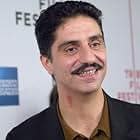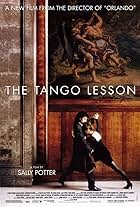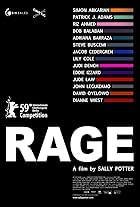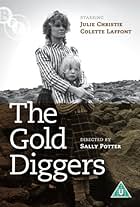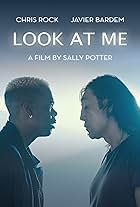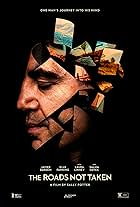I was tempted to do this comment in iambic pentameter and rhyming couplets, but somebody from the "New Yorker" has already done it, and of course I would have run the risk of doing an even worse job than Sally Potter has.
Not that this is such a bad film it's different from the normal run of romantic comedies. At times it becomes quite didactic as "He" asserts the Muslim philosophical position and "She" replies for the secular West. The dying Ulster communist Aunt's story is also an unusual ingredient. Even the more conventional elements the alienated husband (Sam Neil), the empty affluence, the troubled teenager (Stephanie Leonidas), are deftly handled. I say "romantic comedy" because the film ends like one, but it could have equally ended as tragedy. "He" and "She" are both missing something, and find it in each other, only to discover that love does not always conquer all. One could blow one's brains out. But then one can always high-tail it to Cuba instead.
This is a very artful piece of film-making with some very clever camera-work and adroit use of music, but we still have a very ordinary story. Joan Allen as "she" does manage to transcend the material and make us care about her character, which is quite an achievement as the character is a beautiful middle-class Irish-American ice princess scientist stuck in a dead marriage whose only real passion is in what's at the other end of her microscope. It's interesting how she manages to appear so radiant, 10 years younger in fact, after her first roll in the hay with "He".
"He", the French-Armenian actor Simon Abkarian, comes across to start with as a bit of a cliché, the handsome charming feckless foreigner. He is not helped by the aforesaid iambic pentameter, which was not designed for foreigners speaking English. He has to utter one of the most insincere-sounding pick-up lines I have ever heard: "If I was your husband I would be so jealous of your beauty I would not leave your side". As we see more of him, a serious side emerges, an educated Muslim who sees a lot wrong with the West and not much with his own society, despite its inability to live in peace. This he blames on the West. However, the dialectic is sidelined by the plot line, which as suggested above, winds up on a Cuban beach.
The novel "Orlando" by Virginia Woolf was a pretty weird property, and Sally Potter produced a weird and wonderful movie from it. Her "Tango Lesson" was semi-autobiographical, well produced and absorbing. This movie is ambitious "let's see if we can make a romantic comedy about the clash of civilizations and the meaning of life" and although visually fascinating it not surprisingly doesn't quite make it. It has its moments though Maid Shirley Henderson's disquisitions on the nature of dirt to the camera, Sam Neil's guitar miming to an Eric Clapton number and the restaurant orgasm to name a few. Sally Potter still has the ability to find a different angle on existence.












